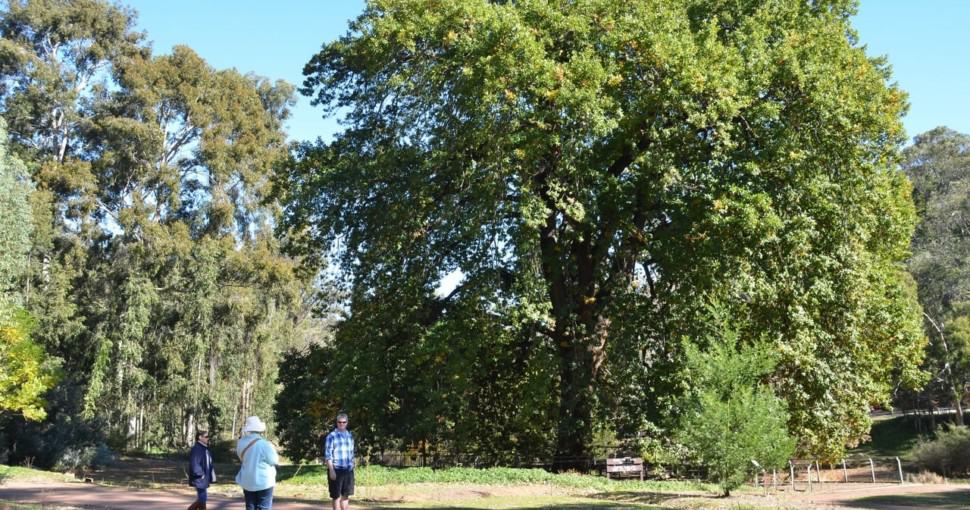
9 Types Of Oak Trees In Australia ProGardenTips
Grevillea robusta Leaves and flowers Stamen and pistil Grevillea robusta, commonly known as the southern silky oak, silk oak or silky oak, silver oak or Australian silver oak, [1] is a flowering plant in the family Proteaceae. It is a tree, the largest species in its genus but is not closely related to the true oaks, Quercus.

How To Grow And Care For An Oak Tree Bunnings Australia
Interested in growing a native tree in your garden? Here's a guide to some of the best Australian trees you can plant at your home. Fast Growing Native Trees | Flowering Native Trees | Native Fruit Trees | Native Screening Trees | Native Shade Trees | Native Evergreen Trees Australian Native Trees List Gum tree Grevillea tree

Top Ten Large Australian Trees Gardening With Angus
Grevillea robusta can be maintained as a low-growing hedge, but if you prune it regularly, aim to cut back to about 2m each year, and allow it to grow back to 3m before pruning again. Grevillea robusta is a particularly tall plant and naturally wants to grow as a tree. Over-pruning can cause stress.

Australian Desert Oak trees Central Australia Stock Photo Alamy
1. Angophora Costata 2. Corymbia Ficifolia 3. Corymbia Citriodora 4. Grevillea Robusta 5. Alloxylon Flammeum 6. Eucalyptus Cinerea 7. Wollemia Nobilis 8. Eucalyptus Haemostoma 9. Araucaria Bidwillii 10. Eucalyptus Camaldulensis Conclusion Australia is a country filled with gorgeous trees.

9 Types Of Oak Trees In Australia ProGardenTips
The most common type of oak tree in Australia is the Disanthospermum australiensis, which is also known as the Australian Oak. This tree is found in the bushland areas of New South Wales, Queensland, and South Australia. There are definitely oak trees in Australia! There are several species of oak trees that are native to Australia, including.
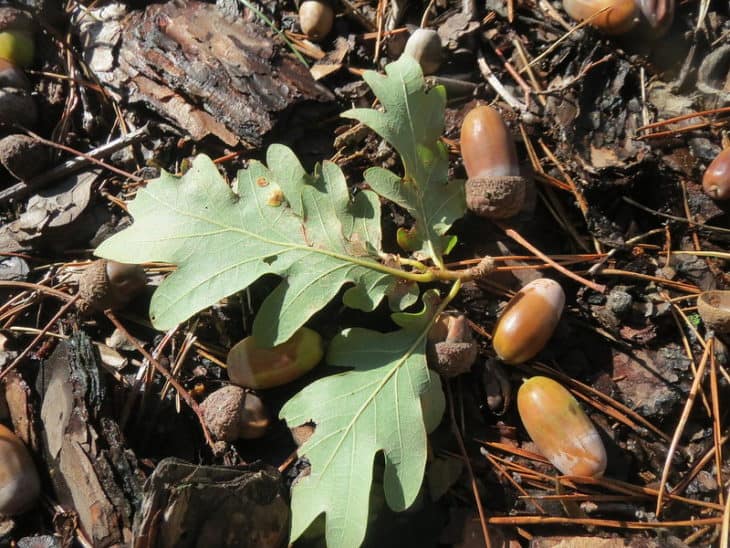
9 Types Of Oak Trees In Australia ProGardenTips
The Silky Oak ( Grevillea robusta ) is a very popular native tree in Australian gardens and can grow to 20 metres and live for up to 100 years. It's bright golden-yellow flowers are actually flower heads made up of around 100 small flowers. Once fully open, they produce large amounts of pollen before a seed capsule is produced.
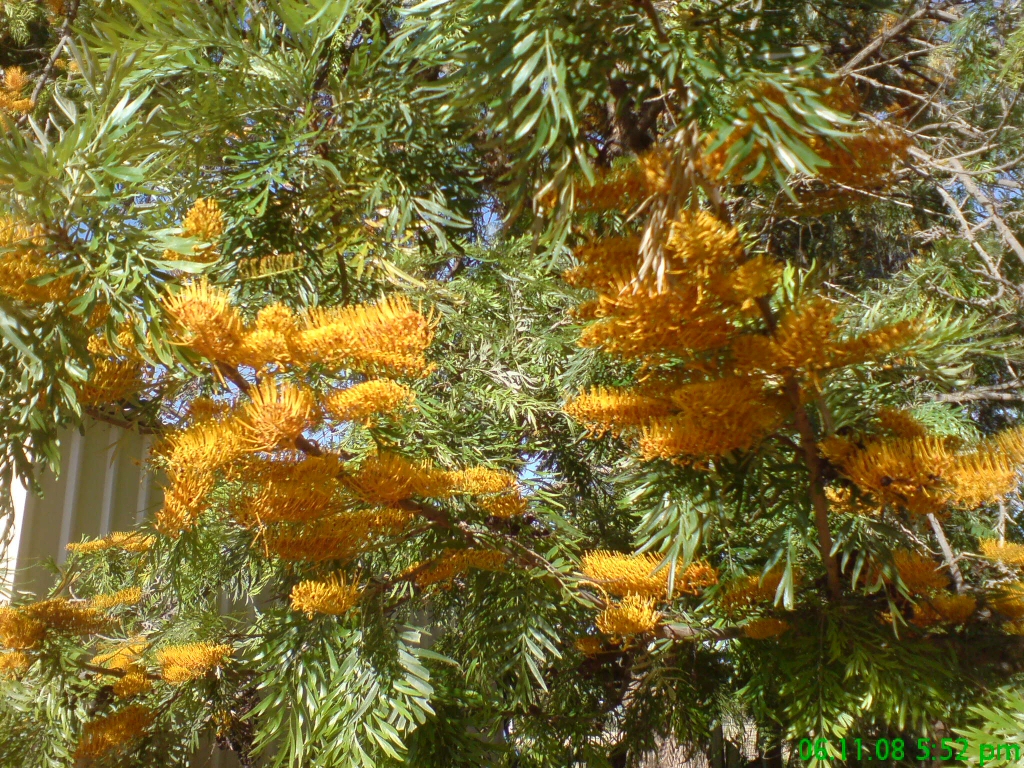
Grevillea robusta Silky Oak Gardening With Angus
In Australia, this tree was first planted in 1879. Most of the grevilleas are hybrids and all have varying qualities. Some grow fast while others are slower. The height of grevilleas can range from 3 feet to 8 feet high, making them one of the tallest flowering trees in Australia. 22. Illawarra Plum Tree. The Illawarra plum tree is a native.
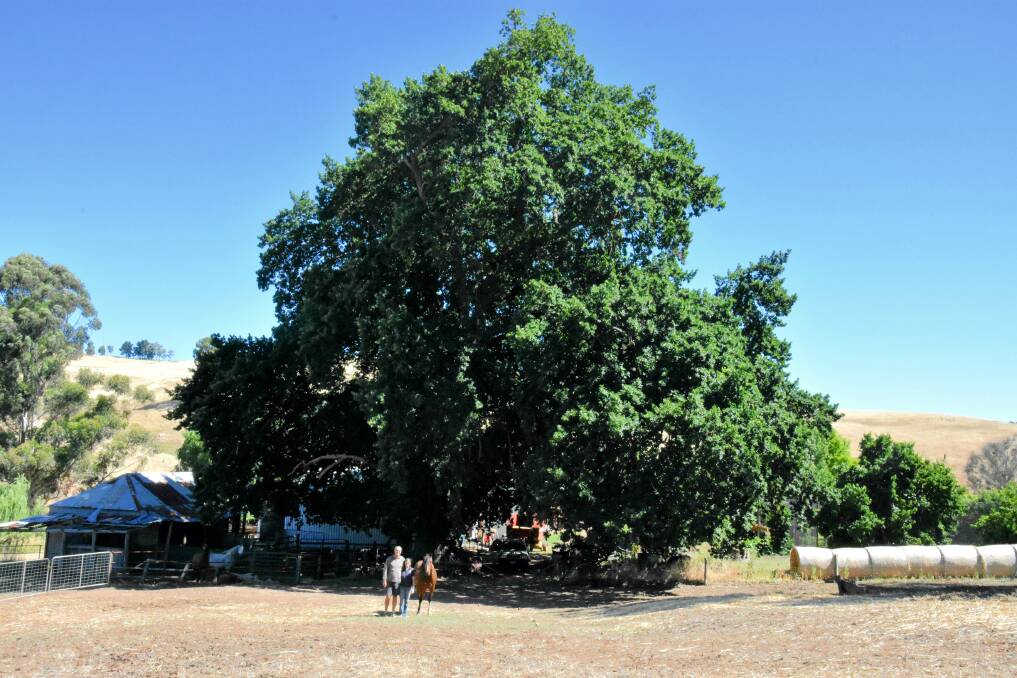
Bridgetown is home to Australia’s largest oak tree Bunbury Mail Bunbury, WA
What you need to know about an oak tree Name: oak, Quercus species and varieties Height: 20m+ with age Foliage: deciduous. Climate: cold temperate and warm temperate. Soil: prefers deep, well-drained soil. Position: full sun. Flowering and fruiting: insignificant flowers on a pendulous stem called a catkin, followed by acorns in autumn.

Oak tree images hires stock photography and images Alamy
silky oak Silky oak (Grevillea robusta). silky oak, ( Grevillea robusta ), large tree native to Australia and also grown as a street tree in warm areas and, in its juvenile stage, as an indoor pot plant. It belongs to the family Proteaceae ( see Proteales ).
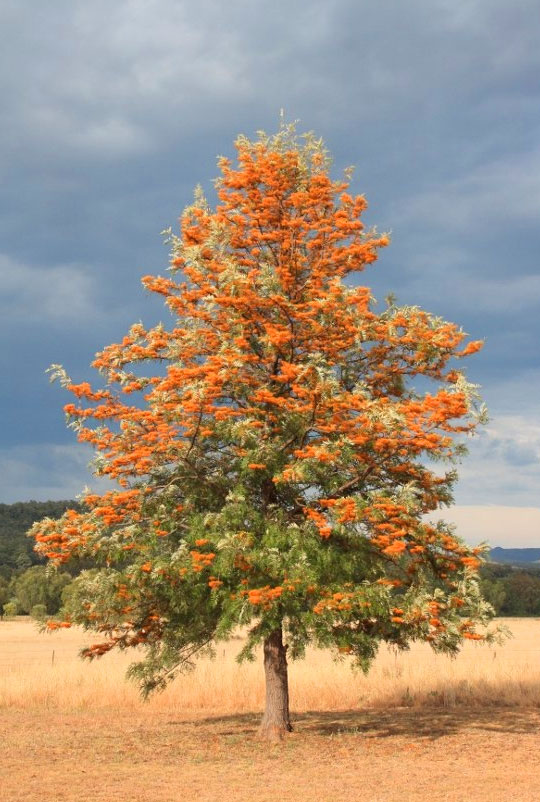
Tree Species Profile The Silky Oak Aussie Tree Care 1300873300
It has a shrubby growth habit and works well as a lawn tree or screen. The tree provides good quality shade despite its small size. Pin Oak (Q. palustris): The pin oak grows 60 to 75 feet tall (18-23 m.) with a spread of 25 to 40 feet (8-12 m.). It has a straight trunk and a well-shaped canopy, with the upper branches growing upward and lower.
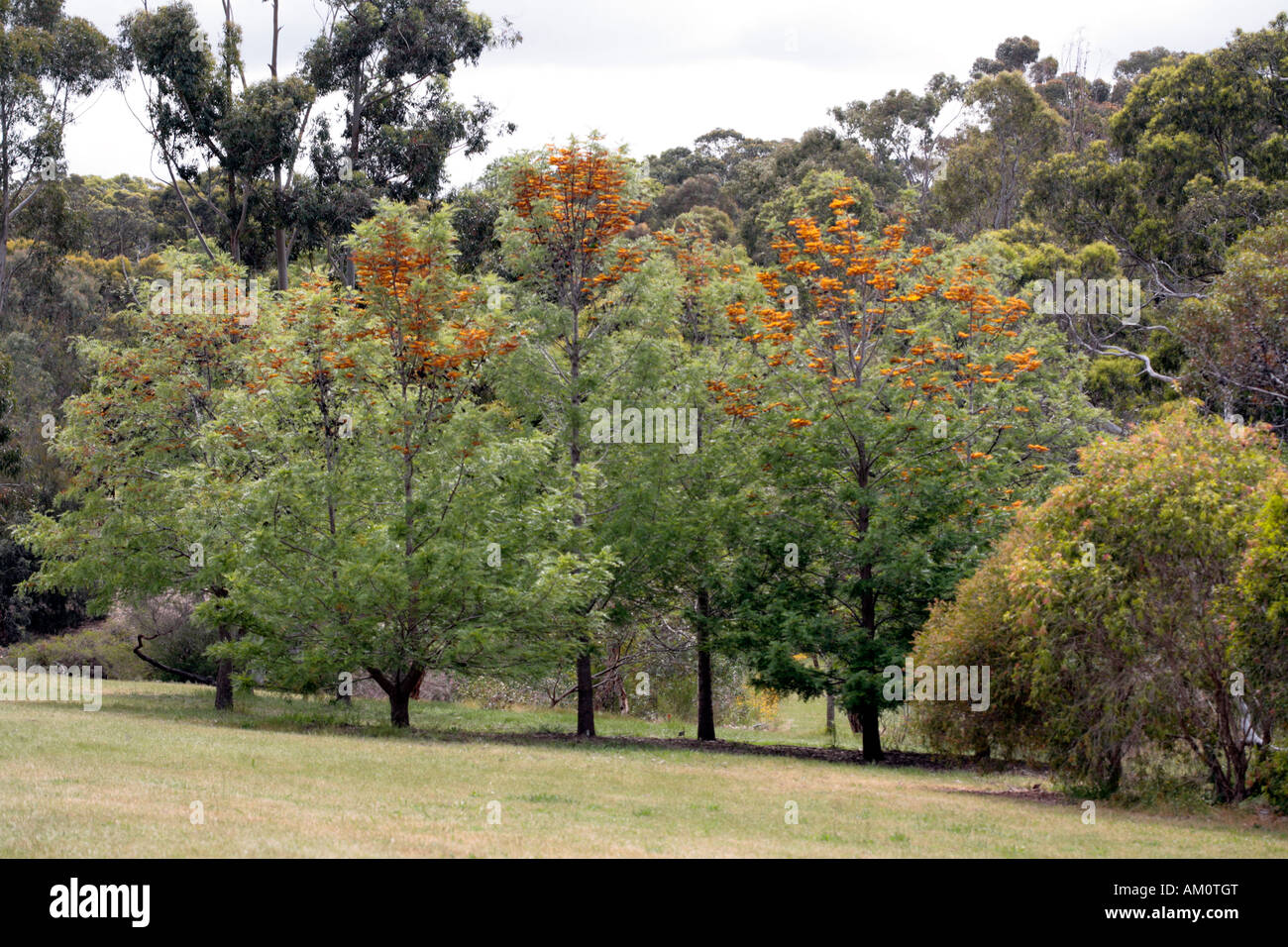
Closeup of Silky Oak/Southern Silky Oak/Australian Silver Oak trees Grevillea robusta Family
Oak trees are an important part of the Australian ecosystem, providing habitat for native animals and helping to prevent soil erosion. It is ideal for the growth of acorn-bearing oak trees in Australia, which has warm, humid summers. Algeria, Red Oak, Turkey Oak, Pin Oak, and other varieties of Oaks can be found in the country.

Grevillea Robusta Australian Silky Oak Tree Stock Photography Image 27376262
2. Casuarina (She-oak) Tree Casuarina (She-oak) Tree. Another noteworthy native tree is the Casuarina, also known as the She-oak or Australian Pine. While it isn't a true pine, its resemblance to the pine family, particularly in its foliage, has earned it this alias. Its leaves are actually modified stems known as "branchlets" or "cladodes."

The Oak Collection at Mereweather Arboretum in Australia International Oak Society
Factors that make this tree suitable for ornamental use in Southern Australia. The Black Oak is a medium sized deciduous tree to 10‐28m tall, with a rounded, compact crown, a straight trunk often branching near the ground, particularly on the tougher DBH usually below 1m. The largest Black Oak found to date is in Placer County, California.
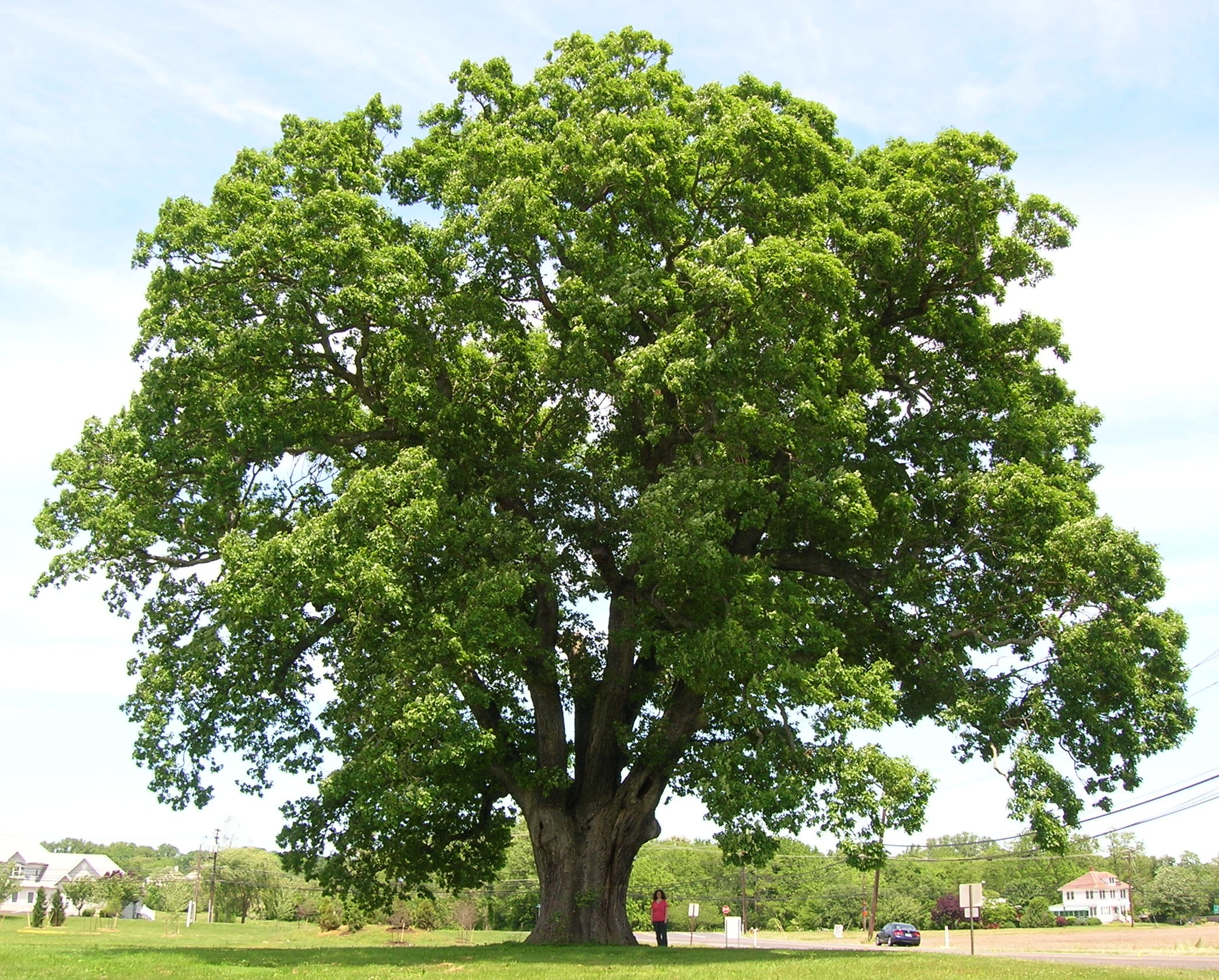
Quercus alba Wikiwand
Here are the most common types of Oak Trees in Australia: 1. Red Oak (Quercus Rubra) Rebecca Dellinger-Johnston Quercus Rubra Red Oak is a deciduous, 50 to 75 feet tall tree with a broad-spreading, irregular habitat. This tree has lustrous, lobed, sharp-edged, dark green leaves that develop a brownish-red hue in autumn.
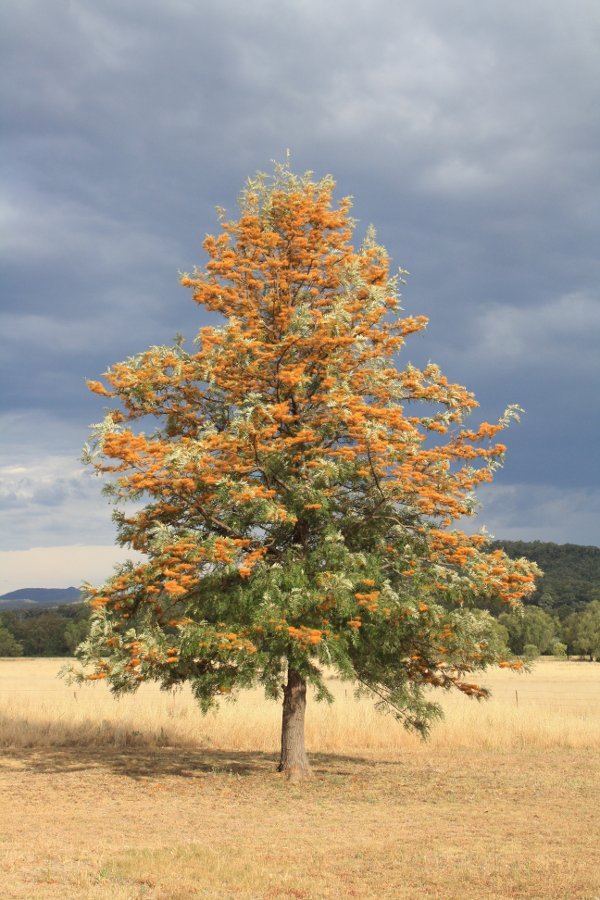
Grevillea Robusta, Southern Silky Oak, Australian Silver Oak Tree 10 Seeds
Quercus rubra. The red oak is a fast-growing, long-lived deciduous tree. Well structured, this tree grows straight and tall, developing a solid trunk and rounded top with age. Bark is grey-brown in colour and foliage is broad and glossy. In its native area, where winter temperatures are quite low, the dark green foliage turns a vibrant red colour.

Silky oak Australian, Evergreen, Deciduous Britannica
Silky Oak, scientifically known as Grevillea robusta, is a majestic and versatile tree that hails from the rainforests of Australia. Renowned for its striking appearance and myriad uses, this evergreen tree belongs to the Proteaceae family. The name "Silky Oak" is derived from the silky texture of its finely divided leaves, which cascade in.